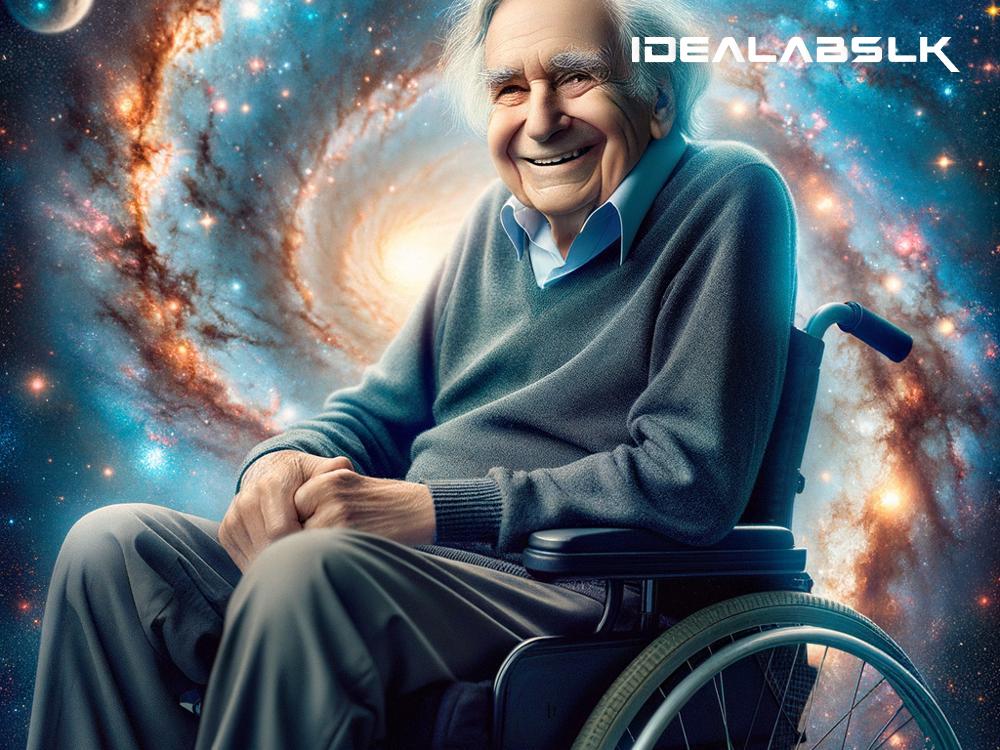Stephen Hawking: A Legacy that Continues to Shape Our Understanding of the Universe
Stephen Hawking wasn't just your everyday scientist; he was a phenomenon. Despite battling a form of motor neuron disease, ALS, which gradually paralyzed him over the decades, Hawking's mind soared beyond the ordinary, delving into the depths of the universe's greatest mysteries. His work on black holes and the nature of the universe has left an indelible mark on the world of science. But how exactly does his legacy continue to influence science today? Let’s take a closer look.
Unraveling the Mysteries of Black Holes
One of Stephen Hawking's most groundbreaking contributions was in the realm of black holes. Before Hawking, these cosmic entities were shrouded in mystery, known only as the universe's insatiable vacuum cleaners, swallowing everything in their path, even light. Hawking, however, saw beyond their ominous presence.
He proposed that black holes aren't the universe's final dustbins; they’re more like cosmic composters. Hawking suggested that through a process now famously known as “Hawking Radiation,” black holes could emit radiation, causing them to lose mass and eventually evaporate. This theory was revolutionary. It proposed that not everything that enters a black hole is lost forever, a notion that contradicted the long-held belief about these cosmic phenomena. Today, researchers continue to explore the concept of Hawking Radiation, looking for ways to observe and understand it, keeping Hawking's legacy alive in the quest to understand the universe’s most mysterious objects.
Bridging the Gap Between the Big and the Small
Hawking's work didn’t just stop at the cosmic level; it spanned into the realms of the very small, blending the worlds of cosmology and quantum physics. He sought a "Theory of Everything," a single cohesive theory that could explain the universe in its entirety, from the vast expanse of cosmic networks to the tiniest particles that make up reality.
Though Hawking never found his "Theory of Everything," his efforts laid the groundwork for future scientists to continue this quest. His work on understanding the early universe and the behavior of particles under extreme conditions has paved the way for advancements in particle physics and cosmology. Scientists today are still inspired by Hawking's vision, working towards a theory that can marry Albert Einstein’s general relativity with quantum physics.
Inspiring a Love of Science
Perhaps one of Hawking’s most accessible contributions was his ability to make science engaging and understandable to the public. His best-selling book, "A Brief History of Time," brought complex ideas about space, time, and the formation of the universe into the homes of millions of readers around the world. With his unique ability to explain the complexities of the universe in a way that was both fascinating and comprehensible, Hawking inspired countless individuals to ponder the cosmos and consider careers in science and mathematics.
Today, Hawking's influence can be seen in the increasing interest in STEM (science, technology, engineering, and mathematics) fields among young people and in the public's growing fascination with space and the universe. His legacy lives on through educational initiatives, public talks, and media presentations that strive to make science accessible and exciting to a wider audience.
Advocating for Earth and Humanity
Beyond his scientific contributions, Hawking was a vocal advocate for the well-being of our planet and humanity's future. He frequently spoke out about the dangers of artificial intelligence, climate change, and the need for space exploration as a means for securing a future for mankind. Hawking believed in the power of scientific inquiry and innovation, not just for the sake of knowledge, but as essential tools for tackling the challenges facing our world.
In this way, his legacy inspires not only a pursuit of understanding the cosmos but also a commitment to using that knowledge for the greater good. Scientists, policymakers, and innovators are influenced by Hawking’s vision, working towards solutions for sustainable living on Earth and perhaps, one day, beyond.
Conclusion
Stephen Hawking's influence on science and beyond is profound and lasting. From unraveling the mysteries of black holes to inspiring a new generation of scientists and thinkers, his legacy continues to shape our understanding of the universe and our place within it. Hawking’s contributions remind us of the power of human curiosity and intelligence, encouraging us to look beyond our limits and explore the wonders of the cosmos. His life and work continue to inspire not just scientists, but all of us, to dream big and aim for the stars.

